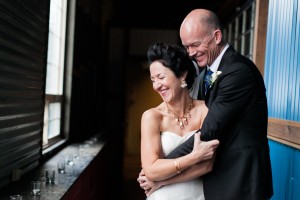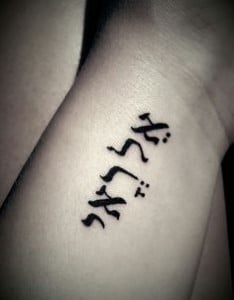I’ve been thinking about this concept of bliss my whole life. What would it be like to be consciously filled with bliss? I had moments of this when I was young, sitting around my family table with my parents and four siblings. I was the youngest and I remember that they would take turns making me laugh, and often I would find myself so caught up that I couldn’t stop laughing, and everyone would join in. And I remember that it was blissful. I didn’t want it to end and it felt like it never would. But then it did end. I believe it was around the time my schooling began—1963 or so. I’m not sure if it was school or the killing of JFK that ended it, but something changed in our house as the mid-sixties arrived, and the laughter faded.
Those moments of bliss have come and gone in my life, but more recently with a kind of conscious intention that I think I missed in those early days of sunshine and giggling with my family. After nearly two years of grieving over the loss of my beloved wife, Annette, I met somebody new, Brooke Lucas-Roberts. We married on December 21st, yes, the solstice. It is the darkest day of the year, and it was chosen, symbolically, that the light would begin to grow that day. And it has—blissfully so.
In the year coming up to my wedding, I had been going to a counselor—a Jungian therapist—trying more than anything else to figure out whether I should get married. I had a lot to work through—grief that felt like a boulder on my chest—I had to think if I wanted to risk my heart again. Love lost breaks us down. My therapist and I studied together what was it about this new woman that made all the difference? At the end, he said to me, “You know Jim, Christianity is about love, and that is what I’ve heard from you in this woman. Love. It’s good. The only thing I’m worried about is that you might screw this up.” I laughed and said, “Yep, she is about love and it’s amazing.”
And that is my question—bliss, is it the simple act of being loved and giving love? Some of you might say, “Well, you’re still on your honeymoon, of course its bliss.” But is that it?

What is bliss, after all? I think it’s quite complex more than a simple sense of new sensual pleasure. It is more like a combination of energy that wells up inside when our intentions, desires and dreams mingle in a way that you say to yourself, “All is well. It is well with my soul.” It is as if a life takes hold of one at the center of one’s being, from which love ebbs and flows and is secure—a flow of energy that feels resilient, stable, and indeed, blissful.
I have told many that in the grief of my loss I had stopped reading. And it’s true, for the most part. I used to take five books on vacation and finish them. But in the interim I had stopped. On our recent honeymoon, I devoured a 500-page book on the intellectual history of modernity—it felt like heaven. My usual lurching from one website to the next, in search of the latest thoughts on politics and culture, stopped.
This feeling of bliss comes from the sense that someone delights in me, not for what I can do or bring in or even make happen, but just for me. And, of course, I delight in her.
I’ve also let go. I’ve said no to things. I feel less craving, less need, a sense that I am at home, again. And what I want most is to be a blessing; to delight in others, to love my daughters and my friends. This feels like conscious bliss, and perhaps that’s what it is.
The Eastern Church says we don’t know the essence of God, but we know God’s energy and, I would add, God’s bliss. The Gospel of John is one long meditation on what that bliss looks like—abundant life; the logos of divine order and beauty; to be born again; to witness fountains of water; to rise up and walk; to be fed; to not judge; to find a gate through; to be anointed with oil; to see light; to be welcomed home; to be promised many gifts; to no longer be orphaned; to find joy; to drink; to touch God.
The great Eastern Father, Gregory of Nyssa, called this bliss a “luminous darkness”—we don’t always see it, but when it comes it creates a light in us that warms us and allows us to see—and maybe it also makes us laugh, again. Hallelujah.











